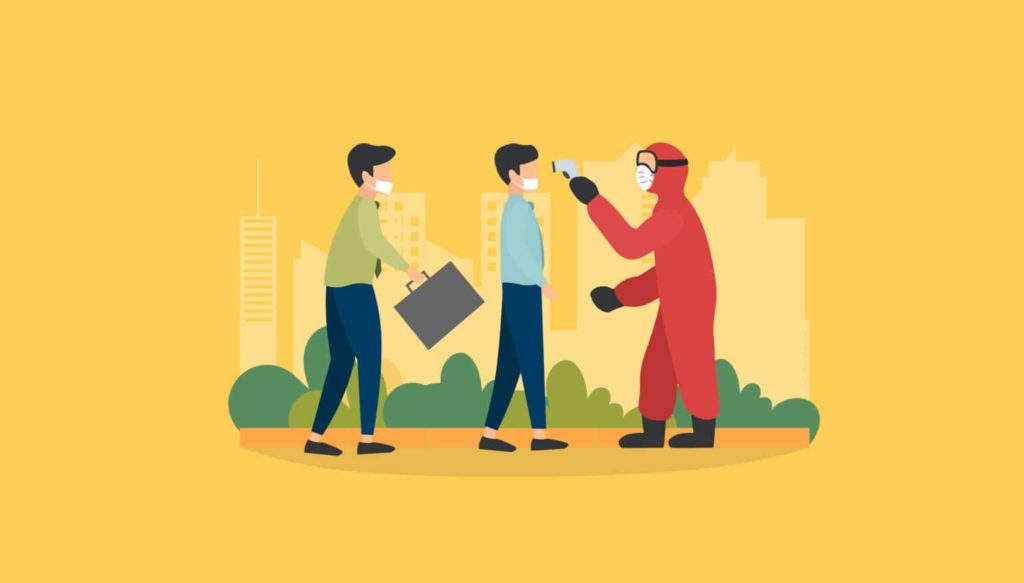
Aside from this article during the quarantine period, more on probationary employment status: Knowing the Difference Between Probationary Employment and Project Employment
-
The probationary employment shall not exceed six (6) months from the date the employee started working, unless allowed by law
-
An employee who is allowed to work after the probationary period is considered a regular employee
-
The community quarantine period is not included in the 6-month probationary period
Many if not majority of the probationary employees in the private sector are confused as to whether the community quarantine period is included for the purpose of determining the six-month probationary period.
Who is a probationary employee?
The Supreme Court says:
A probationary employee is one who, for a given period of time, is being observed and evaluated to determine whether or not he is qualified for permanent employment.
The period given by law in which to observe and evaluate said probationary employee is six (6) months. May it be extended? The answer is yes. May it be shortened? Yes.
The law says:
Probationary employment shall not exceed six (6) months from the date the employee started working, unless covered by an apprenticeship agreement stipulating a longer period. The services of an employee who has been engaged on a probationary basis may be terminated for a just cause or when he fails to qualify as a regular employee in accordance with reasonable standards made known by the employer to the employee at the time of his engagement. An employee who is allowed to work after a probationary period shall be considered a regular employee.
With the outbreak of Covid-19 Pandemic, communities were put under quarantine or lockdown that limited the movements of people. This greatly affected the operation of private establishments providing employment. It is undeniable that some establishments have temporarily ceased or closed operations.
As a consequence, some employees, if not all, were not required to report for work. If said establishments have probationary employees, what then is the effect of community quarantine to their probationary period?
To serve as clarification, the Department of Labor and Employment (DOLE) issued Labor Advisories.
Initially, the one-month Enhanced Community Quarantine (ECQ) was not included in determining the six-month probationary period as mandated under Labor Advisory No. 14, Series of 2020. However, with the rising of Covid-19 cases, the ECQ was extended prompting the Department of Labor and Employment to issue Labor Advisory No. 14-A (LA 14-A), Series of 2020.
LA 14-A provides that for purposes of determining the six-month probationary period, the period during which the ECQ or general community quarantine (GCQ) is enforced where the establishment has temporarily ceased or closed operations and/or the worker was temporarily not required to report for work, is not included in the six-month probationary period.
For a better understanding, let us see the example below:
Martina is a probationary employee of Four Brothers’ Clothing Merchandising located at Quezon City. Martina started her probationary employment with Four Brothers’ Clothing Merchandising on January 17, 2020. Thus, under the law, the period of her probationary employment is from January 17, 2020 to July 17, 2020 which is exactly six months.
However, with the declaration of the President of the Philippines placing the entire Luzon under ECQ effective 12 a.m. of 17 March 2020 to 12 a.m. of 13 April 2020, Four Brothers’ Clothing Merchandising was temporarily closed. Thus, Martina was not required and did not to report for work for the said period.
In case Four Brother’s Clothing Merchandising resumed operation on April 17, 2020 and required Martina to report for work, Martina’s probationary employment is extended to August 17, 2020 to complete the six-month probationary period. This is because the ECQ period (12 a.m. of 17 March 2020 to 12 a.m. of 13 April 2020) is not included in her initial six-month probationary period (January 17, 2020 to July 17, 2020).
But, since the ECQ was further extended while some parts of the country were placed under GCQ, LA No. 14-A applies. Again, using the above example, Martina’s probationary employment would be further extended depending on the period during which she was required to work.
However, do note that even when a particular community or area was placed under ECQ or GCQ but if the concerned probationary employee was required to reported for work, the period during which he was required to report for work is still included in the six-month probationary period.
Alburo Alburo and Associates Law Offices specializes in business law and labor law consulting. For inquiries, you may reach us at info@alburolaw.com, or dial us at (02)7745-4391/0917-5772207.
All rights reserved.
SUBSCRIBE NOW FOR MORE LEGAL UPDATES!
[email-subscribers-form id=”4″]

